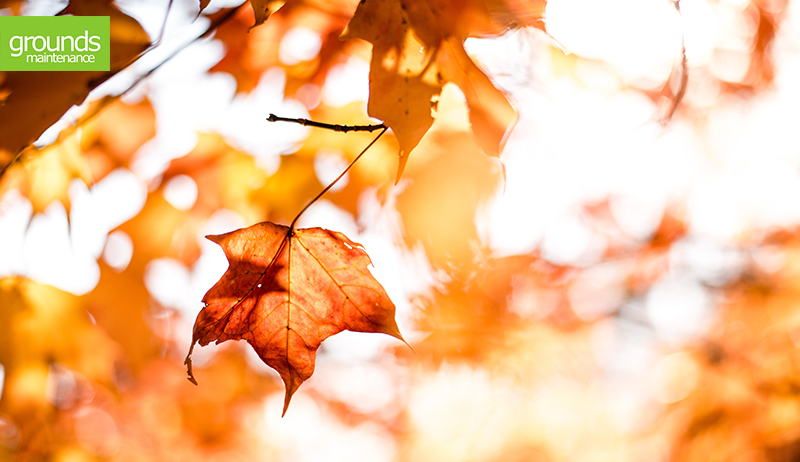
November Garden Jobs
The leaves are falling and the temperature has dropped, winter has officially arrived!
This time of year is busy for all gardeners as the fallen leaves are a problem for clients and contractors alike. Shorter days mean shorter working hours, unless of course you’re hardcore and work under the trusted van headlights – though not many clients like you doing this and complain… What can you do?
Whilst things are slowing down in the garden, there are still options if you’re not quite ready to stop planting yet. Prepare for a beautiful spring showing by planting your spring bulbs now!
November focus: Plant spring flowering bulbs
If you want a colourful garden in spring, now’s the time to plant your bulbs.
A little tip; make sure you bury your bulbs deep enough. Aim to plant them to three times their depth, measured from top to bottom. If you’ve got a lot of planting to do it’s worth using a proper bulb-planting tool. If you garden on heavy soil, such as clay, drop a handful of coarse gritty sand into the bottom of the hole to help drainage.
If you have no idea which to plant, the Royal Horticulture Society have a handy guide to spring bulbs on their website: RHS Spring Bulbs
Garden jobs for November
General garden jobs
- Dig over any ground that will be bare overwinters, such as flowerbeds and vegetable plots. If you have some spare garden compost or well-rotted manure, spread it over the ground so it automatically gets turned in as you work.
Vegetables and herbs
- By mid-month dig up carrots and parsnips and store them in the fridge or shed
- Harvest leeks and Brussels sprouts
Undercover
- Ventilate the greenhouse well on sunny days, reduce watering to a bare minimum, and continue regular dead-leaf picking
- Check bulbs being forced for early flowering weekly, and move them indoors when the flower buds show the first hint of colour
- Sow hardy plants from seed
- Check stored fruit, vegetables, bulbs and corms for signs of rotting
Lawns
- If it’s very wet keep off the lawn if possible or protect it with a temporary path and sprinkle with sand if it’s slippery
- Continue cutting the grass all the time it keeps growing, but raise the blades
- Remove dead leaves from the lawn. They can be made into leaf mould; an excellent compost.
- Lay turf, dig over areas for new lawns you plan to turf or sow in the Spring
Ponds
- Cut down plants around the pond to 5cm above the water level
- Remove and overwinter under glass any tender free-floating plants such as water lettuce and water hyacinth
- Pull out any yellow, dead or dying water lily leaves within reach
- Clear out sludge from small ponds – just use an old flowerpot to scoop out as much as you can reach when you kneel on the edge
- If you have a pump remove it, clean it out and store it for the winter
- Stop feeding the fish
Trees, shrubs and climbers
- Plant or move deciduous woody plants such as trees, shrubs, roses and hedges. Dig them up once the leaves have fallen, and re-plant them
- Add 1m stakes to newly planted trees to keep them stable in the ground for the first few years while the roots take hold. Trees with frail or feeble root systems, such as fruit trees, may need staking permanently
- Look after newly planted trees and shrubs. If the weather is dry give them a good soaking to tide them over. Check strong winds or frosts haven’t lifted the roots out of the ground and heel them back in if they have
- Renovate old trees, shrubs and climbers, don’t hack them back or down, you know, we need them to grow back next year. Just cut out the oldest branches (the ones that are thickest with the darkest bark). Leave the other branches for now. Just remove a few each year and in 3 or 4 years you’ll have replaced the whole plant
Flowers
- Protect young and slightly tender plants from the cold by adding a deep mulch of compost or bark chippings over the roots
- Remove dead leaves from the tops of plants
Patios and containers
- Protect container plants from wind, persistent rain and continuous cold weather
Wildlife
- Don’t forget, this can be a tough time of year for birds to find food so help out your feathered visitors through the winter by keeping your bird feeder topped up.
- Don’t cut mature ivy back, where possible, as the flowers provide a fantastic source of nectar and pollen for late-flying insects.
- Make a wildlife pile out of twigs and sticks, they’re a valuable habitat for mosses, lichens and fungi, as well as many insects.
Patios and containers
- Protect container plants from wind, persistent rain and continuous cold weather
Wildlife
- Don’t forget, this can be a tough time of year for birds to find food so help out your feathered visitors through the winter by keeping your bird feeder topped up.
- Don’t cut mature ivy back, where possible, as the flowers provide a fantastic source of nectar and pollen for late-flying insects.
- Make a wildlife pile out of twigs and sticks, they’re a valuable habitat for mosses, lichens and fungi, as well as many insects.







